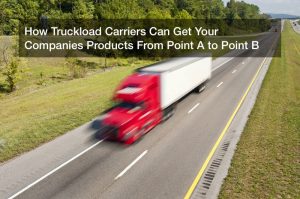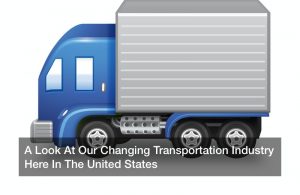
Even though technology continues to change the way companies do business, there’s little doubt when it comes to transporting and delivering products that truckload carries still play a very important role. After all, trucking is still needed to get products from point A to point B and they often carry the most freight by value. In fact, the average value of freight is expected to increase from about $882 per ton in 2007 to $1,377 per ton in 2040.
If shipping a lot of product is something your company does frequently, you might want to use truckload carriers to make sure products consistently get where they need to go. Truckload carriers are often typically used to haul large shipments of 10,000 pounds in situations where freight has a direct destination; that is to say it leaves one spot and travels directly to its final destination. This is in contrast to unlike less-than-truckload (LTL) freight, which usually sees shipments transferred from truck to truck.
You’re probably wondering how to tell if truckload carriers and truckload freight are ideal solutions for your company. If you consider the following questions, you’ll be able to tell whether or not they are:
- How big is your shipment?
- How much are you shipping and how frequently?
- Are you looking for a “direct flight” for products to get delivered faster?
- Do the products your company ships fill a while truck container?
- Who’s going to load the products for shipping and unload the shipment when it reaches its final destination?
Bottom line: if your company ships products in shipments of 10,000 pounds or more, can usually fill entire trucks with product, prefers “direct flight” shipping as opposed to making pit stops and has someone to load and unload all of your shipments, truckload carriers will likely benefit your company. It’s usually more cost-effective than LTL shipping services and has many benefits:
- Your items are going to ship faster.
- There is less damage to your items and less risk of damage since the items your company is shipping are packed, shipped and then not touched until they reach their destination. This is a great way to prevent breakages, leaks and spills.
- Many truckload freight companies charge per mile and not per pound, so it ends up being more cost-effective for many companies.
If you’re in the market for reputable truckload carriers, many truckload freight carriers work independently. This allows companies to usually make direct contact with brokers and the carriers themselves.
With advances in technology, companies no longer have to be wary of sending their items via truck. Everything has changed these days from transport services for machinery to tradeshow logistics to truckload logistics. With technology driving it all, shipping has never been easier, safe or more cost-effective.
Technology in trucking today offers many benefits to truckers, which are then indirectly passed to the companies they do business with.
- GPS: These days, a quality GPS tracking system can make all the difference for truckload carrier. Efficient truckload logistics and freight logistics depend on fast delivery and on-time delivery. Thankfully, GPS systems can keep carriers in the loop with changes in shipments as well as road condition so shipments get to where they need to go.
- Driving logs: Electronic driving logs keep drivers safe and helps keep track of shipments better since drivers are only allow to travel during approved hours.
- Cameras: Carriers can use today’s camera technology to keep themselves safe and greatly reduce the risk of accidents. Cameras can also monitor road conditions and help increase their visibility when carriers are out there on the road. This is very beneficial for companies where product insurance is concerned.
- Temperature tracking equipment: In some instances, shipping perishable items and other things requires special packing and precautions. Special equipment like temperature monitoring is also used, but it is up-to-date and keeps shipments safe.
If your company is looking for fast, efficient and safe ways to make sure its products get to the places they’re supposed to go, using truckload carriers can make that all possible.

